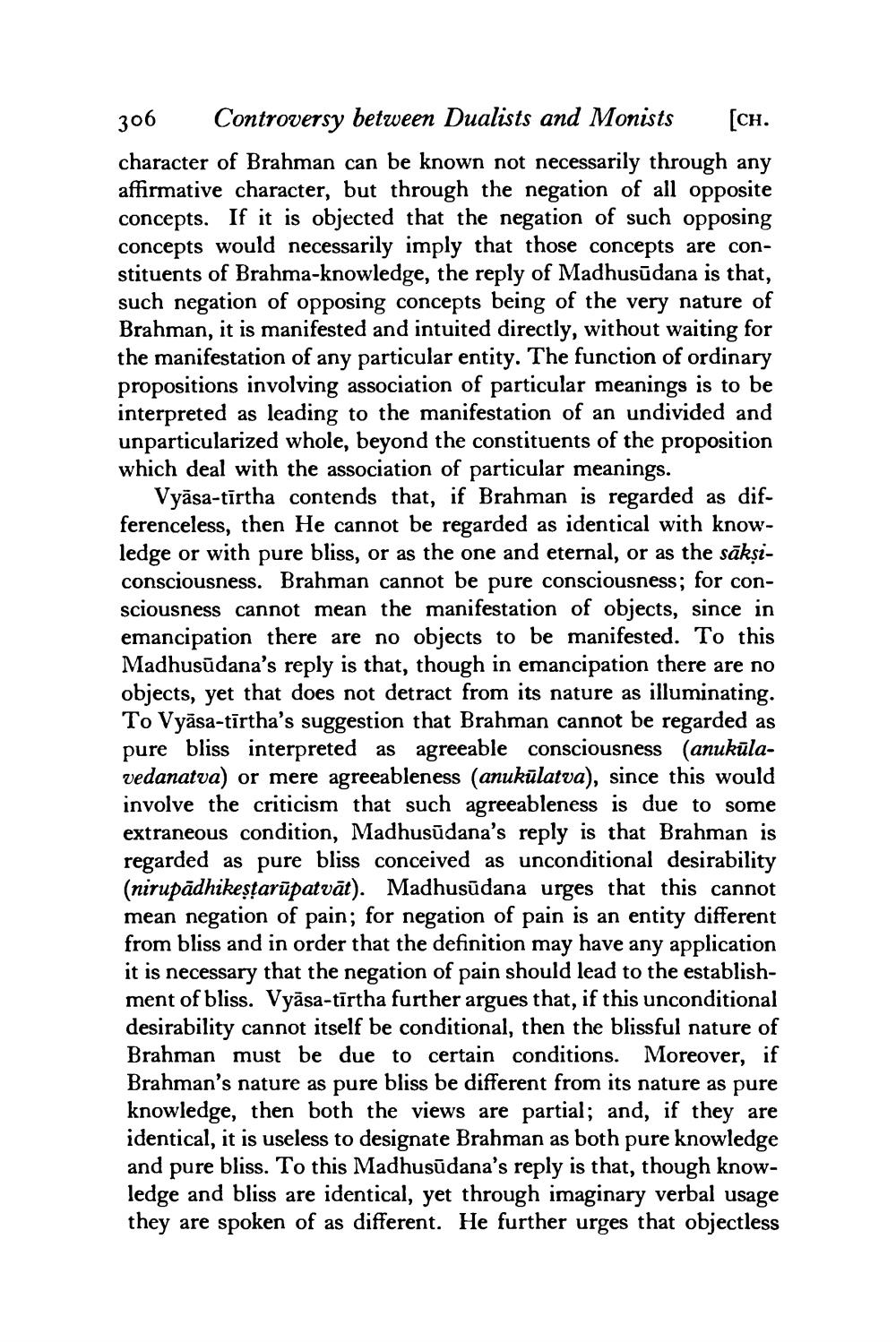________________
306 Controversy between Dualists and Monists [CH. character of Brahman can be known not necessarily through any affirmative character, but through the negation of all opposite concepts. If it is objected that the negation of such opposing concepts would necessarily imply that those concepts are constituents of Brahma-knowledge, the reply of Madhusūdana is that, such negation of opposing concepts being of the very nature of Brahman, it is manifested and intuited directly, without waiting for the manifestation of any particular entity. The function of ordinary propositions involving association of particular meanings is to be interpreted as leading to the manifestation of an undivided and unparticularized whole, beyond the constituents of the proposition which deal with the association of particular meanings.
Vyāsa-tirtha contends that, if Brahman is regarded as differenceless, then He cannot be regarded as identical with knowledge or with pure bliss, or as the one and eternal, or as the sāksiconsciousness. Brahman cannot be pure consciousness; for consciousness cannot mean the manifestation of objects, since in emancipation there are no objects to be manifested. To this Madhusudana's reply is that, though in emancipation there are no objects, yet that does not detract from its nature as illuminating. To Vyāsa-tīrtha's suggestion that Brahman cannot be regarded as pure bliss interpreted as agreeable consciousness (anukūlavedanatva) or mere agreeableness (anukūlatva), since this would involve the criticism that such agreeableness is due to some extraneous condition, Madhusūdana's reply is that Brahman is regarded as pure bliss conceived as unconditional desirability (nirupādhikestarūpatvāt). Madhusūdana urges that this cannot mean negation of pain; for negation of pain is an entity different from bliss and in order that the definition may have any application it is necessary that the negation of pain should lead to the establishment of bliss. Vyāsa-tīrtha further argues that, if this unconditional desirability cannot itself be conditional, then the blissful nature of Brahman must be due to certain conditions. Moreover, if Brahman's nature as pure bliss be different from its nature as pure knowledge, then both the views are partial; and, if they are identical, it is useless to designate Brahman as both pure knowledge and pure bliss. To this Madhusūdana's reply is that, though knowledge and bliss are identical, yet through imaginary verbal usage they are spoken of as different. He further urges that objectless




